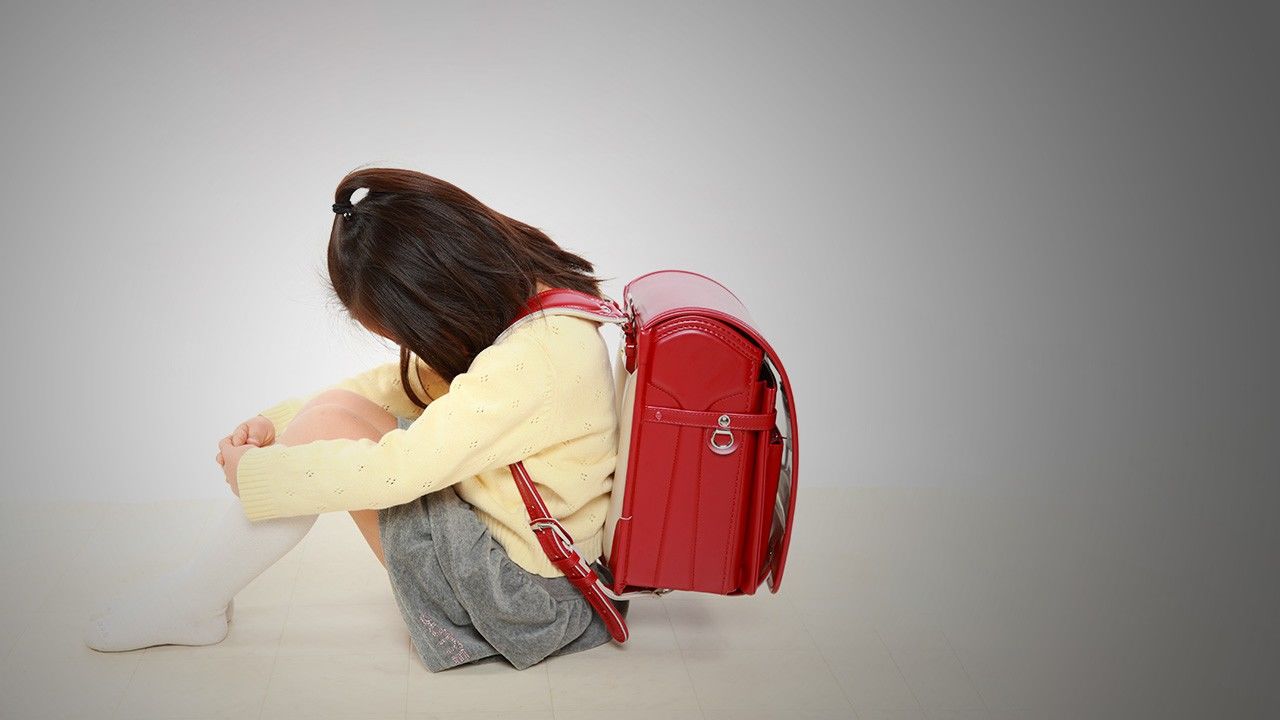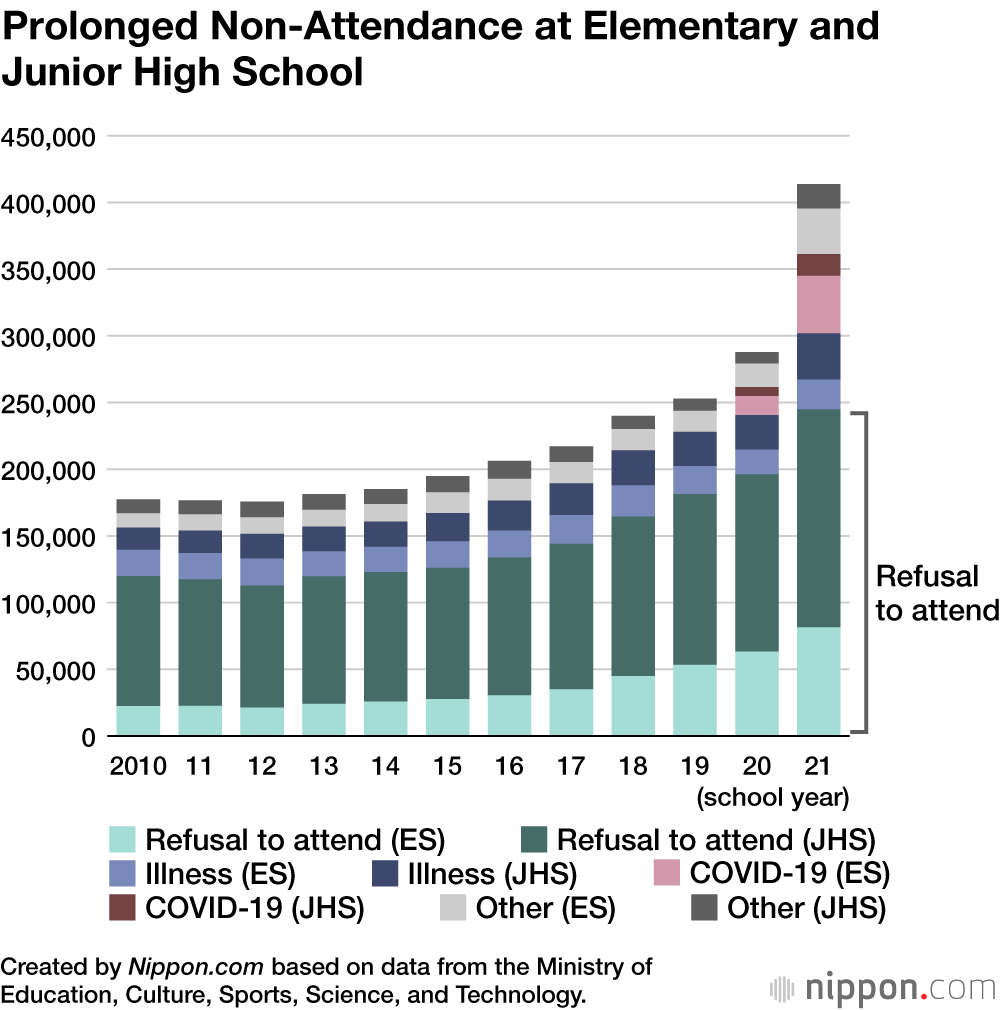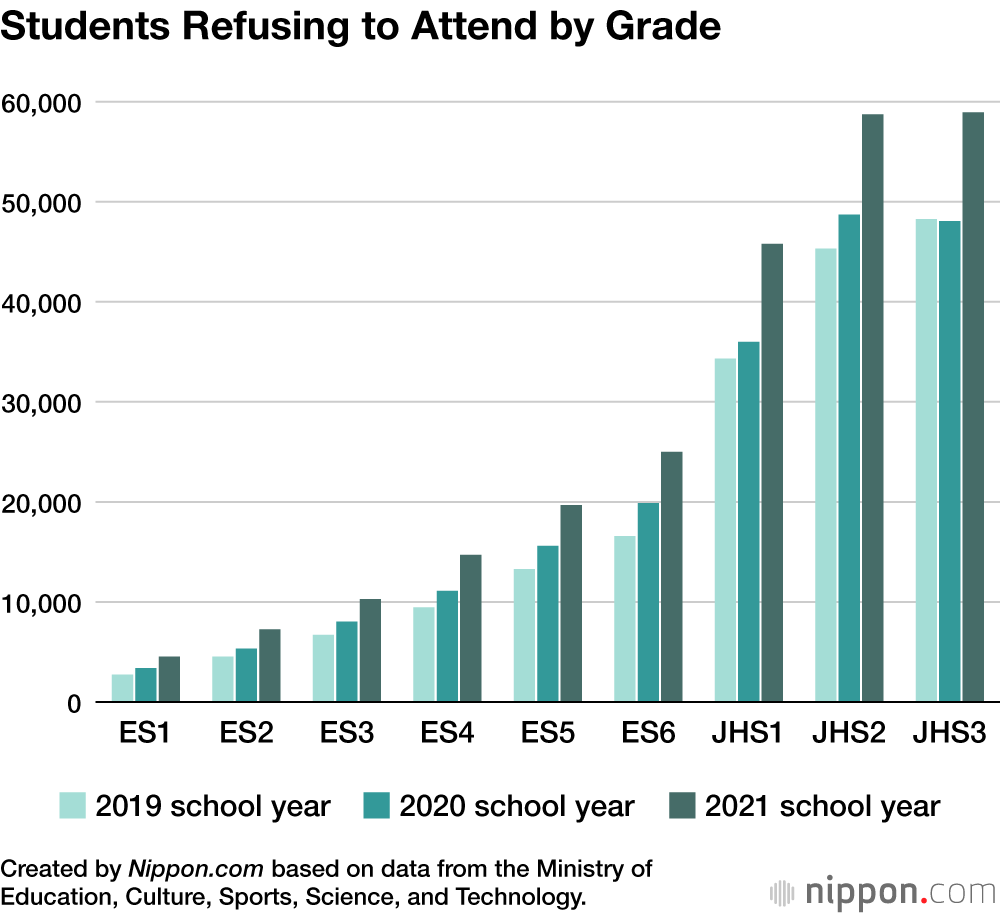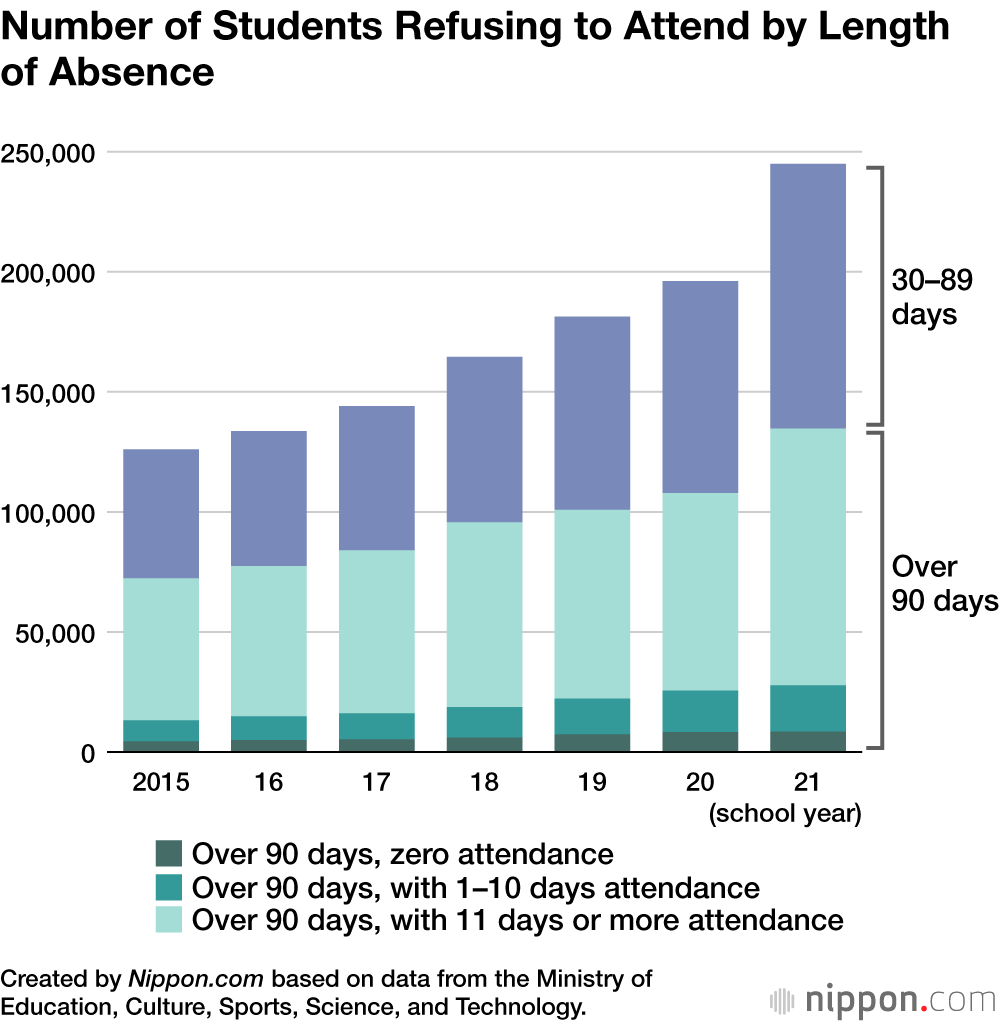
Breakdown of Routines During Pandemic Lead to Record School Absenteeism in Japan
Society Education- English
- 日本語
- 简体字
- 繁體字
- Français
- Español
- العربية
- Русский
The results of a survey on problematic behavior and non-attendance of school children by the Ministry of Education, Culture, Sports, Science, and Technology showed that in 2021 the number of students who refused to attend school for 30 days or more increased from the previous year by 48,813 (24.9%) to a new record high of 244,940. This marks the ninth consecutive annual rise and, when compared to 10 years ago, non-attendance has risen 3.6-fold for elementary school students and 1.7-fold for junior high school students.
Looking at non-attendance by education level, there were 81,498 elementary school students (up 28.6% from the previous year) and 163,442 junior high school students (up 23.1%), both the highest increases on record. There was a particularly sharp increase in the figures for junior high students, with one in twenty not attending school.
This sudden rise is thought to be connected to the COVID-19 pandemic causing disruptions in routines, such as through school closures and cancellation of school events, which lowered the psychological barrier to non-attendance. This was compounded by a fall in motivation to attend as ongoing restrictions on activities made it difficult to form friendships.
(Translated from Japanese. Banner photo © Pixta.)


